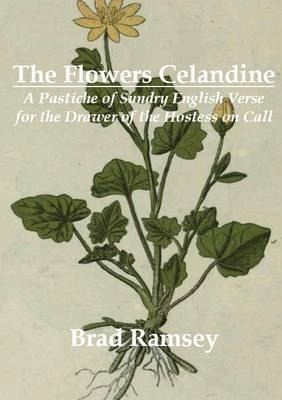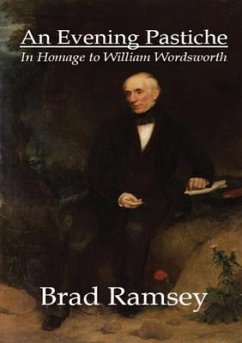
The Flowers Celandine (eBook, ePUB)
A Pastiche of Sundry English Verse for the Drawer of the Hostess on Call

PAYBACK Punkte
3 °P sammeln!
Ramsey's gentle collection of romantic poems proves as stereotypically flowery as the metaphors he uses in some entries to describe the relationship between a man and a prostitute. Writing in the style of 18th-century English poets such as William Collins and Percy Bysshe Shelley, who often sought out metaphor in nature when describing their love of a woman, Ramsey prettily captures this antiquated mode of verse ("In morning dew, all your leaves wet/ You are dear as the briar-rose/ Midst woodland brook and violet").In "The Hourglass Hostess," the tone shifts between romance and sultriness with...
Ramsey's gentle collection of romantic poems proves as stereotypically flowery as the metaphors he uses in some entries to describe the relationship between a man and a prostitute. Writing in the style of 18th-century English poets such as William Collins and Percy Bysshe Shelley, who often sought out metaphor in nature when describing their love of a woman, Ramsey prettily captures this antiquated mode of verse ("In morning dew, all your leaves wet/ You are dear as the briar-rose/ Midst woodland brook and violet").
In "The Hourglass Hostess," the tone shifts between romance and sultriness without vulgarity ("I have sacrificed an hour for you; And four good posts within the red-lit room"); in "Helianthus and Hedera," vulgarity is deployed sparingly in a dialogue between plants, a nun, and Mother Science. "To The Small Celandine" innocently likens a lover to a sprouting flower in bloom ("One so small and so very fair/ Like other flowers against the rain/ That shrink in close shelter, at rest/As the sun shines, come out again"). The narrator of "John the Baptist" inveighs against immodest dressing and working on the Sabbath, exhorting "all nations" to "reform your sinful lives this very day."
This is a skillful homage to traditional English-language rhyming poetry. In fact, it hits the mark so well that it lacks the advertised modern twist; nothing in it will surprise fans of the poets it honors. Readers familiar with classic literature will delight in the gentle imagery and elegant meter of bygone days, but those seeking a new take on these older works may find themselves underwhelmed.
In "The Hourglass Hostess," the tone shifts between romance and sultriness without vulgarity ("I have sacrificed an hour for you; And four good posts within the red-lit room"); in "Helianthus and Hedera," vulgarity is deployed sparingly in a dialogue between plants, a nun, and Mother Science. "To The Small Celandine" innocently likens a lover to a sprouting flower in bloom ("One so small and so very fair/ Like other flowers against the rain/ That shrink in close shelter, at rest/As the sun shines, come out again"). The narrator of "John the Baptist" inveighs against immodest dressing and working on the Sabbath, exhorting "all nations" to "reform your sinful lives this very day."
This is a skillful homage to traditional English-language rhyming poetry. In fact, it hits the mark so well that it lacks the advertised modern twist; nothing in it will surprise fans of the poets it honors. Readers familiar with classic literature will delight in the gentle imagery and elegant meter of bygone days, but those seeking a new take on these older works may find themselves underwhelmed.
Dieser Download kann aus rechtlichen Gründen nur mit Rechnungsadresse in A, D ausgeliefert werden.













